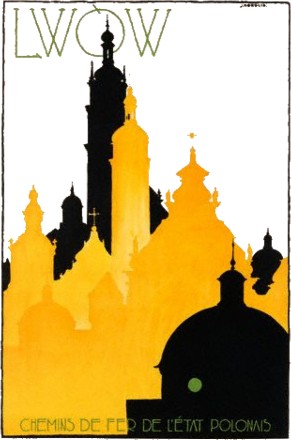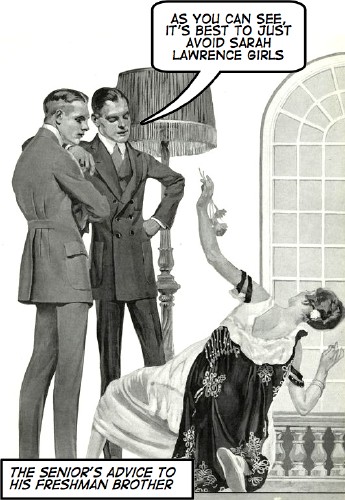2006 July
About Andrew Cusack
 Writer, web designer, etc.; born in New York; educated in Argentina, Scotland, and South Africa; now based in London.
Writer, web designer, etc.; born in New York; educated in Argentina, Scotland, and South Africa; now based in London. read more
News
Blogs
Reviews & Periodicals
Arts & Design
World
France
Mitteleuropa
Knickerbockers
Argentina
The Levant
Africa
Cape of Good Hope
Netherlands
Scandinavia
Québec
India
Muscovy
Germany
Academica
Can Kid Save This Sinking Ship?
25-Year-Old Buys the Salmon Siren of the Upper East Side
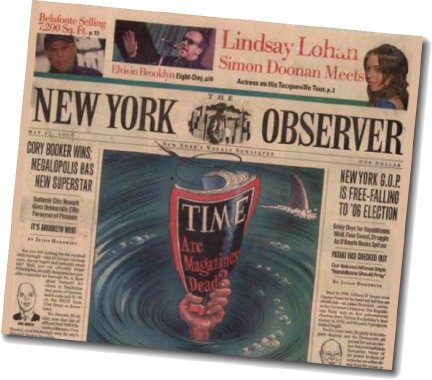
AN NYU LAW  student of just twenty-five years of age has purchased the majority stake in the New York Observer. Jared Kushner (right), son of the currently jailed big-time donor to the New Jersey Democrats Charles Kushner, bought the biggest-piece-of-the-pie off of publisher Arthur Carter, who founded the insouciant weekly printed on salmon-tinted paper back in 1988. No official word on how much money changed hands during the deal, though the Times cites “one person familiar with details of the sale” claiming the amount was nearly $10 million. Carter will maintain a significant say in the paper’s operations, and there are no plans to make any changes to the masthead as of the moment. Earlier in the year Robert de Niro was in talks to buy the Observer through his Tribeca Film Festival operation, but the negotiations fell through.
student of just twenty-five years of age has purchased the majority stake in the New York Observer. Jared Kushner (right), son of the currently jailed big-time donor to the New Jersey Democrats Charles Kushner, bought the biggest-piece-of-the-pie off of publisher Arthur Carter, who founded the insouciant weekly printed on salmon-tinted paper back in 1988. No official word on how much money changed hands during the deal, though the Times cites “one person familiar with details of the sale” claiming the amount was nearly $10 million. Carter will maintain a significant say in the paper’s operations, and there are no plans to make any changes to the masthead as of the moment. Earlier in the year Robert de Niro was in talks to buy the Observer through his Tribeca Film Festival operation, but the negotiations fell through.
The Observer, with a small-but-influential circulation of 55,000, has undergone a miniature transformation recently with the hopes of turning around the current losses of about $2 million a year. The most noticeable of these changes came in May when the paper trimmed over an inch in width, moving from six front-page columns to five and giving it a taller, more narrow appearance. While the thinner size saves on rising newsprint costs it also means diminished space for advertising, and the newspaper lost its easy, leisurely feel, also moving from two sections to one. The Observer has also increased the volume of its internet operations on Observer.com, some might say at the expense of the quality of the printed edition. The new owner, however, will take a back seat in the content of the newspaper while concentrating on improving the bottom line, citing the Observer‘s strong brand despite its current financial woes.
Kushner’s father, a well-known New Jersey real estate developer, was sentenced to a jail term last year after being found guilty of tax evasion, and is well-known for a number of other stunts which do not bear repeating on, er, family-friendly sites such as this. The younger Kushner himself has given over $100,000 to various (Democratic) political outfits since 1992, when he was a mere eleven years of age.
I used to read the Observer often (though not regularly) because it had the most style of all the New York newspapers. While its flighty spirit meant it lacked a certain depth, it still had zing and usually at least a handful of interesting articles each week. The quality of the content began slipping, however, and when I came home to New York I bought one copy while waiting for the train in Grand Central, was completely dissatisfied like the new size and feel, and decided to give it up. I will always have a certain fondness for the Observer though; in the age when Gannett-style corporate monotony is king, it has managed to maintain a certain classic swankiness (epitomised in its reporter-and-skyline emblem) and for that we can be grateful.
The Spectator

Taki Jr Ties the Knot
I’ve always liked Taki’s columns in the Spectator; for his sins, the man has a good heart and often writes with brutal honesty. Anyhow, Mr. Theodoracopulos’s son recently got hitched, with the priest shipped in from Staten Island, and the baptism of the couple’s six-month-old child (!) on the same day. You can read it all yourself. (The links are Taki’s).
Midsummer marriage
Frankly, this was not a cool wedding. There were no security guards, no stretch limos, no Liz Hurleys, no cutting-edge genetic technology, not even a same-sex marriage. Not very with it, I know, but there we are. John Taki and Assia got hitched last Saturday in the most magical setting I have ever seen a Xanadu. ‘And there were gardens bright with sinuous rills/Where blossomed many an incense-bearing tree;/And here were forests ancient as the hills,/Enfolding sunny spots of greenery.’
Old Sam Coleridge must have visited Prince Nettuno Borghese’s property by the sea, west of Rome, because what Kubla Khan decreed is where my boy got hitched. Assia’s father Count Maurizio Baudi di Selve and her mother Maria Grazia never let on what they had in store for us. Maurizio is the scion of the Borghese clan, the oldest princely family of Italy, and he began the celebrations on Friday evening in the Palazzo Borghese, with a small dinner for around 250.
Back in the good old days, Rome was led by princes who built palaces reflecting their power. The present head of the family still lives in an apartment there, sharing the rest of the palazzo with the Circolo della Caccia, Rome’s most exclusive gentlemen’s club. Liveried staff move silently, evoking a time when nobility led from the front. The place is so grand and so beautiful even I managed to behave. The trick for a successful wedding is to keep it small. Only good friends need be invited. The mother of my children, John Taki and I invited 90, Assia’s family 135. Not a freak among them, no stuffed shirts, no charlatans, just young people full of grace and manners to match their beauty.
Afterwards, on the terrace of the Hassler, we began to blow off steam. I had friends who had flown in from New York, Los Angeles, Athens and three all the way from deepest Mexico. The jet lag helped. At five in the morning, the management declared the bar closed because a few bores upstairs found it hard to sleep.
Next day was the big one, so I went to the Borghese Gardens and tried to sweat off some of the booze. After a while I had to sit down next to some fat American tourists who, I think, were complaining about the lack of air-conditioning.
Around five in the afternoon I was driven towards Anzio, where Nettuno lies high above the sea. A long alley lined with hay bales suddenly revealed a beautiful small chapel next to a handsome red house which I mistook for the main one. (It turned out to be the gardener’s cottage; some cottage.) Two large semi-circles of armchairs were provided for the guests outside the chapel. The ceremony was conducted by Father Ramsay, a close friend of my family who had flown in from Staten Island, Noo Yawk.
Though I say it myself, never have I seen a better-looking couple. The father of the bride is a tall and very handsome man, some 20 years younger than me, and when he came in with Assia, the Med glistening in the distance behind, the green walls of the surrounding woods, spots of light penetrating, the scene was so moving I almost blubbed. Close but no cigar. John Taki, an incredibly sloppy dresser, was for the first time in his life looking like Beau Brummell. He had spent three months preparing his sartorial triumph. Two violinists played Vivaldi and, after a ceremony conducted in English and Italian by the polyglot Father Ramsay, it was time for…yes, the baptism of Taki-Tancredi, aged six months. (Leave it to a son of mine to get married in front of his baby son.) My daughter Lolly was his godmother.
The party that followed I will not soon forget. We walked from the chapel to a wood under a canopy of pines where a jazz band played in the pink light of dusk. My friend John Sutin mistook the round tables lined with drink and pizza-makers for the real thing, and had 24 slices of freshly made pizza. As it got dark and we were asked to proceed to an open lawn under an 11th-century tower for dinner, Sutin looked like the proverbial cat that had swallowed you-know-what. Dinner under the stars, topiary transforming the house into a stage set, so many beautiful young girls, it was a bit too much for me. I got completely blotto, gave a good speech, and danced all night to Zulu music, something I don’t do that often. The newly-weds left as the sun was rising, on Bushido, anchored off in the distance and gave a long whistle goodbye. I thought I saw some dolphins escorting them away, but obviously my eyes were playing tricks. A long summer day and night had ended but the memories will always linger like echoes of the mind.
Peter Simple II
Traditionalists are very wary of claims that ‘the world has changed’, for we have long memories. We know that the world has only ever truly changed twice: when man first rebelled in the Garden of Eden, and when Christ defeated that rebellion on the Cross of Calvary. Nonetheless, men are fickle and can easily be overwhelmed by events, be they calamitous or felicitous. In his first column after the tragedy of September 11th, Peter Simple mourns the loss while sagaciously pointing out the utter futility of the ‘war on terror’ which had been proclaimed. What took a few years for we foolish knaves to discover, the Grand Old Man was already reminded us merely a week after the terrible attack.
No Change
21 SEPTEMBER 2001
 ONLY a stony-hearted fanatic could have been unmoved by the massacre in America. Yet for us feudal landlords and clerical reactionaries, cranks, conspiracy theorists and luddite peasants, the downfall of the twin towers that symbolised the worldwide empire of imaginary money is not in itself a cause of grief.
ONLY a stony-hearted fanatic could have been unmoved by the massacre in America. Yet for us feudal landlords and clerical reactionaries, cranks, conspiracy theorists and luddite peasants, the downfall of the twin towers that symbolised the worldwide empire of imaginary money is not in itself a cause of grief.
Ever since the atrocity, dense clouds of hysterical rhetoric have been drifting about the world. America is at war, says President Bush. Britain is at war, says Tony Blair, dutifully echoing his master. The whole world is at war, say the “media”. But what enemy is the world at war against? Terrorism!
A war against terrorism is as futile and fatuous as those other fashionable wars, “the war against drugs” and “the war against racism”. You might as well declare war against old age or death.
September 11, the “media” say, was the day that changed the world for ever. But the world has not changed. It is still the same old world, good and bad, that it has always been. As for terrorism and terror, only one thing is certain: we have seen nothing yet.
A month later, a lighter heart returned. Using one of his favourite fictional devices, the Feudal Times and Reactionary Herald, Simple reminds us of the familial bonds which bind Britain and America, and suggests a novel demand to be laid on the Americans’ for support in their time of need.
What the Papers Say
5 OCTOBER 2001
IN A thoughtful leader, The Feudal Times and Reactionary Herald offers an alternative prospect for the world to that of Tony Blair: “Now that our rebellious North American colonists, justifiably enraged by the late atrocities in their country, have put themselves on a war footing, few will doubt that we have a certain family duty to help these wayward but redoubtable people in their time of trouble.
“Few will doubt, however, that the price of our support must be their concurrence with a general settlement in the world: a return to the principles of sanity that were so disastrously overturned by their own revolt and by the even more lamentable events that followed it in France.
“First and foremost, we must assert the superiority of our own European civilisation – a principle left to an Italian politician (whose name escapes us) to enunciate some time ago, to the scorn and derision, needless to say, of the enemies of our civilisation in our own country and abroad.
“We must restore the stability and good government formerly assured by colonial rule in Africa, Asia and South America. A reunited India must again accept the benevolent authority of the Raj. The Chinese Empire, too, must be restored together with its admirable mandarinate.
“In Europe itself, the empires and monarchies which were so lamentably swept away after the First World War, must rise again, ensuring those civilities of diplomacy temporarily replaced by a graceless rabble of ignorant upstarts, low-bred bagmen and radical students. But the price of our support for our rebel colonists in their present trouble must be an end to their present anomalous position which, thanks in part to our own supine policies, has now lasted for more than 200 years.
“We are convinced that the better sort among our rebel colonists would welcome a new declaration of allegiance to Crown and Empire. Sentiment apart, who can doubt that the Empire, newly invigorated by the return of these impetuous but energetic people, would be the dominant power in the world for the foreseeable future, unchallenged by any power or combination of powers that could be brought against it?”
Previously: I: ‘Quiz’ and ‘A Model Planet’
The Felicity of Chronicles
 In the midst of my summer indolence, reading Chronicles proves to be one of the most nourishing experiences. There is no other monthly (except the New Criterion) which features such good writing on such a variety of subjects and which refuses to take anything for granted. The overwhelming majority of the intellectual culture of the West today lazily presupposes agreement with Enlightenment concepts and all that nasty business unleashed by the French Revolution. Chronicles dares ask the question “What if they’re wrong?” and quite often posits the statement “Actually, they are wrong!” which then opens the door to truly considering, well, all the aspects of society; this even though Chronicles rather humbly subtitles itself ‘A Magazine of American Culture’.
In the midst of my summer indolence, reading Chronicles proves to be one of the most nourishing experiences. There is no other monthly (except the New Criterion) which features such good writing on such a variety of subjects and which refuses to take anything for granted. The overwhelming majority of the intellectual culture of the West today lazily presupposes agreement with Enlightenment concepts and all that nasty business unleashed by the French Revolution. Chronicles dares ask the question “What if they’re wrong?” and quite often posits the statement “Actually, they are wrong!” which then opens the door to truly considering, well, all the aspects of society; this even though Chronicles rather humbly subtitles itself ‘A Magazine of American Culture’.
The August 2006 edition highlights the convergence between socialism and capitalism in our society and contains much of interest. However we will provide you with only a few good snippets from Thomas Fleming’s piece, ‘Socialism is Theft’.
[…] I remember my astonishment, in the 1980’s, meeting college students who were already talking about which corporations offered the best retirement plans. At that age, I did not imagine I would live to see 25 – and the way I was living more than justified such skepticism. Girls and Greek poetry were my principal inspirations, and Greek still brings pleasure. When a young male is thinking about retirement at the age of 20, he has already given up all hope of ever becoming a man. […]
‘We are all socialists now,’ as Sir William Harcourt observed over a century ago, and nothing has so contributed to the socialist mentality of modern life as the disappearance of private property, not only as reality but even as an ideal. American mobility, combined with the frenetic hallucination that ‘ending is better than mending,’ has detached Americans, in particular, from local roots. These days, a home is not the place in which your father was born or your grandfather died; homes are sold by the dozens by realtos who are ever eager to help you move up. If a ‘home’ is nothing more than an investment, it is hard to blame the politicians for thinking they could turn your house and lot into a more socially productive investment by selling it to developers. […]
The abuse of eminent domain is only a minor symptom of a much deeper malaise. Our rights of possession are contingent on the power of government at every level to tax property and, if taxes are not paid within a specified period of time, to confiscate it and sell it to the highest bidder. For most of us, this power does not represent an imminent danger, but it is symbolic of our dependency on government. […]
Whatever they may earn, working stiffs who depend for their very existence on government agencies and corporations larger than most nation-states are a far cry from the confident and assured citizens of the old America. The old Americans were men and women few government lackeys wished to provoke. Today, we seem to live at the behest of powerful and impersonal forces. At best, we are their loyal (and timid) retainers.
Is this result – the weakening of our character – intentional? I do not know, but the motives of politicians are always suspect. The most successful lie put forth by neoconservatives is the so-called law of unintended consequences, which would have us believe that the architects of centralized state education, the New Deal, and the Great Society did not realize that the consequence of taking control of schooling might be to transfer authority from families and communities to state and federal bureaucracies, and they never imagined that, in paying people to do nothing, they would not only discourage the necessary habits of work and thrift but undermine the self-reliance and initiative that supposedly characterized the true American. This same political class, we are called upon to believe, had absolutely no idea that the 1965 Immigration Act would dramatically alter the ethnic composition of the United States or that flooding the Horn of Africa with weapons would lead to war. Credat Apella iudeaus!
Socialism marches on, and, in its progress, it attracts more dedicated capitalists and free-enterprise capitalists to the cause. Planned obsolescense in appliances is good, argues one libertarian con man, because we should always be buying the new and improved model. The same argument applies to houses, wives, families, and communities. We are all caught up in Progress Fever, like the Gold Fever that sent so many foolish men to die, far away from all they loved, in California or Montana.
Economic liberty and free enterprise can be maintained only by a certain kind of human character that is created and nourished under certain specific social and cultural conditions. A farmer who farms his own land and defends it with his gun, who supervises the schooling of his children and sits on his church’s vestry, is a far cry from the deracinated consumer who switches houses every five years and pays other people to protect him. The consumer may make and spend far more money, but he does not have a clue as to the meaning of the term economic liberty, and, when times are hard, he will cry like a stuck pig for government to reach out its ever-extending arms to save him from the consequences of his cowardice and greed.
America’s Latest Basilica

Holy Hill, the National Shrine of Mary, Help of Christians, has been named a basilica minor by the Holy Father. The Carmelite friars came from Bavaria to found the monastery at this hill in Wisconsin one hundred years ago in 1906. While the invocation of Mary as Help of Christians (Auxilium Christianorum) began in the 1500’s, the feast of Our Lady, Help of Christians was instituted in 1815 by Pope Pius VII in thanksgiving to God and Our Lady for the freedom of the Papacy and of Europe brought about by the defeat and exile of Napoleon Bonaparte.
Via the Holy Whapping.
Above photograph of Holy Hill by Carl Waltz
A Royal Gathering
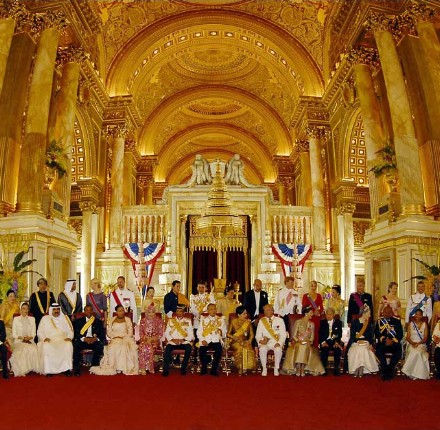
Click here for a photo of most of the world’s reigning monarchs and a number of other royalty, gathered to celebrate the jubilee of the King of Thailand’s accession to the throne.
A few weeks ago, Fr. Rutler informed me that the Queen of Thailand, upon acceding to the throne, made a vow never to perspire. No word on whether she’s kept her vow.
Dr. Strangelove & Dr. Timmerman

I’ve always had suspicions about my friend Dr. Jens Timmerman, a Göttingen/Balliol man and the Frankfurter Allgemeine Zeitung‘s only subscriber in the Royal Burgh of St Andrews. He clearly has some Strangelovian blood in his veins.
One of the best things about Jens (apart from being a man of erudition and taste) is his refusal to give in to the low standard of propriety maintained by students; especially the practice of arriving for his lecture, picking up the handout, and leaving immediately. One day he made a fake handout and waited for the lazybones to leave before distributing the real handout to the remnant. It included, under ‘Further Reading’, a guide to manners and etiquette. Also, I am informed that whenever a mobile phone goes off during one of his lectures he pronounces “Please turn off your walkie-talkies!”
Dawn Eden in the Irish Times

This morning I was browsing the front pages of a few of the world’s leading dailies and came across the Irish Times. I thought to myself “My, that lady bears a striking resemblence to Dawn Eden.” Then I read the headline ‘Chastity Can Make You Happier, Says Author’ and thought to myself “How bizarre! That sounds just like something Dawn would say.” Finally I put two and two together and thought “Crikey! That is Dawn!” C.f. the Dawn Patrol.
Our readers will no doubt recall that Dawn mentioned my comments regarding the Brooklyn Museum’s mauling of their own façade in her Daily News column. More recently she’s written a book and has been buying refrigerators for nuns.
Elsewhere: Superpower: The View from New York – Matt Alderman reports on a night on the town with Dawn Eden including the ever-prescient and incisive wisdom of Andrew Cusack
An Old Military Academy on Long Island
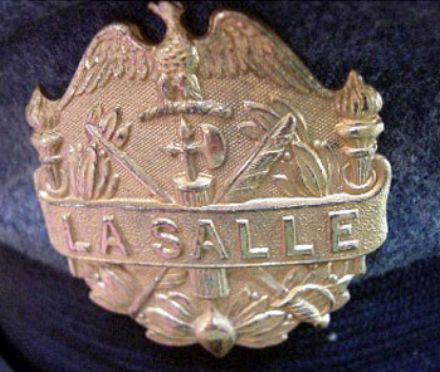
EDUCATION HAS BEEN one of the long-standing traditions of the Christian faith, as has service, and what better expression of education and service is there than the Catholic military school. La Salle Military Academy in Oakdale, L.I. was just one of these institutions, founded by the de la Salle Christian Brothers in 1883. The school was actually founded here in Westchester as the Westchester Institute, but moved in 1926 to Indian Neck Hall on Long Island, built by F.G. Bourne (whose upsate shack was Singer Castle on Dark Island) and once one of the largest estates on the Island. The main building was a 110-room mansion overlooking Great South Bay, designed by Ernest Flagg who, coincidentally, was responsible much of the Naval Academy at Annapolis including the great chapel which contains the tomb of John Paul Jones, sometime admiral of the United States and Imperial Russian navies. (more…)
An Old Boathouse in Spuyten Duyvil
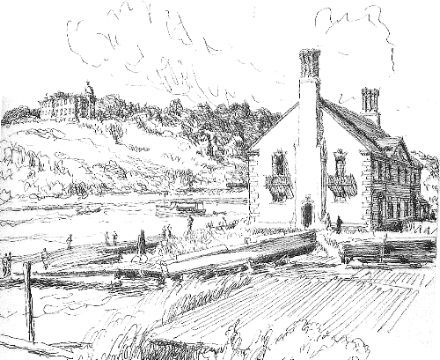
Flipping through an old book called ‘Magical City: Intimate Sketches of New York’, I came upon this sketch of the Gould Boathouse of Columbia University on the Harlem River by Spuyten Duyvil. I had never come across this little building before and had significant doubts as to whether it was still there, but to my pleasant surprise it does. I’m afraid I don’t know much about the boathouse nor its history, but here follows a number of photos and images of it, and of various Columbia boathouses of the past. (more…)
Politician Mentions Chesterton
Hold the Front Page!
 The Canadian Prime Minister, the Rt. Hon. Stephen Harper PC MP, has moved higher in my estimations since I read the transcript of his speech given this past Friday to the Canada-U.K. Chamber of Commerce. The Prime Minister recalled the words of Sir Winston Churchill speaking in Ottawa in 1929 that at the heart of the relationship between Canada and the United Kingdom “is the golden circle of the Crown which links us all together with the majestic past that takes us back to the Tudors, the Plantagenets, the Magna Carta, habeas corpus, petition of rights, and English common law… all those massive stepping stones which the people of the British race shaped and forged to the joy, and peace, and glory of mankind.”
The Canadian Prime Minister, the Rt. Hon. Stephen Harper PC MP, has moved higher in my estimations since I read the transcript of his speech given this past Friday to the Canada-U.K. Chamber of Commerce. The Prime Minister recalled the words of Sir Winston Churchill speaking in Ottawa in 1929 that at the heart of the relationship between Canada and the United Kingdom “is the golden circle of the Crown which links us all together with the majestic past that takes us back to the Tudors, the Plantagenets, the Magna Carta, habeas corpus, petition of rights, and English common law… all those massive stepping stones which the people of the British race shaped and forged to the joy, and peace, and glory of mankind.”
The Prime Minister continued: “Britain gave Canada all that – and much more. Including: Parliamentary democracy; a commitment to basic freedoms; the industrial revolution; and the entrepreneurial spirit and free market economy. Not to mention Shakespeare, Dickens, Kipling, Lewis, and Chesterton.”
Chesterton! How splendid to hear a politician, not to mention a head of government – an American head of government (North American, if you insist) – include G.K. Chesterton as one of the precious gifts of the Mother Country to her far-flung children in the English-Speaking World.
Previously: Dilbert on Gilbert | Chesterton Remembered
Peter Simple I
The death not all too long ago of Mr. Michael Wharton of the Daily Telegraph‘s Peter Simple column was a great loss to skeptics of modernity in the English-speaking world. We have decided, in little helpings, to bring you a bit of the greatness of Peter Simple on this website so that you may at least have a small taste of what we have lost. Though the column ran for over half a century, we begin with two excerpts from 2000 and 2001 respectively.
Quiz
22 DECEMBER 2000
 HERE are the answers to the annual columnar quiz: (1) the boiling point of Zirconium; (2) the Papal Bull Neo Igitir Sufflaminanda, issued by Pope Innocent the Terrible in 1264; (3) In the slow movement of Mahler’s Symphony No 43 (“the Inexhaustible”), passages for tubular bells are marked con sarcasmo; (4) Douglas Sartre’s Through a Chiltern Window (1906).
HERE are the answers to the annual columnar quiz: (1) the boiling point of Zirconium; (2) the Papal Bull Neo Igitir Sufflaminanda, issued by Pope Innocent the Terrible in 1264; (3) In the slow movement of Mahler’s Symphony No 43 (“the Inexhaustible”), passages for tubular bells are marked con sarcasmo; (4) Douglas Sartre’s Through a Chiltern Window (1906).
(5) We know that Col Palamountain, Dr Znacz, the Rev Ian Yeast and Mrs Library-Smith were playing bridge in the residents’ lounge of the Seaview Hotel at Norquey at 4.25pm, the precise moment when Lord Haversnake’s body was found in the shrubbery by Bates, the head porter.
According to Wendy Kakopoulidis, a temporary Greek waitress, Adam Strongitharm, self-styled ex-commando, para-pharmacist and philanderer, was seen at 4.35 abseiling from the roof of the conservatory after trying unsuccessfully to set it on fire. Therefore the murderer can only have been Miss Bagster.
The questions will appear in the New Year.
A Model Planet
9 FEBRUARY 2001
THE status of Pluto, recognised since its discovery in 1930 as the outermost planet of the solar system, is threatened by American astronomers who maintain that it is not a planet at all but merely the largest of the icy bodies, called the Kuiper Belt, that orbit Neptune.
The American Dr Neil Tyson, whose astronomer’s heart seems to be as warm as Pluto is reputed to be cold, explains how Pluto has changed “from the most puny planet to the King of the Kuiper Belt. I think it is happier that way,” he says consolingly. But an English astronomer, Jacqueline Mitton, says “we have come to know Pluto as a planet and there is no need to downgrade it now”.
The latest probe by the columnar space vehicle “Don Carlos and the Holy Alliance III” sheds a new, balmy light on this quarrel. Daguerreotypes just received from space suggest that Pluto, far from being a miserable ball of ice and rock, is a pleasant little world with many lessons to offer our own.
For such a small planet, it seems to have a remarkable variety of landscape. There are fertile valleys, mountains neither too big nor too small for symmetry, trout streams and salmon rivers, forests plentifully supplied with deer and other game, as well as wolves and bears. Towards the poles there are wild regions to attract adventurous explorers.
A hereditary class of great landowners presides over a russet-cheeked, contented peasantry toiling dutifully in the fields as their forebears have done from time immemorial, remarkable for their godly and healthy lives. Machines other than ploughshares and, interestingly, a few bicycles are nowhere to be seen. Some of the daguerreotypes, taken by electro-galvanic telescopic camera obscura, show everyday scenes that cannot fail to move anyone who fears for the future of our own human race.
Here an aged peasant, snowy haired but still straight-backed and vigorous, sits at his cottage door in the Plutonian evening, carving wooden toys for the grandchildren clustering eagerly about his knees. Indoors, a young peasant woman, perhaps their mother, decked with quiet graces, sits by candlelight, bending her modest head over her needlework – surely a scene as beautiful and edifying as any planet can offer.
Is astronomy, like all science, subjective? In the light of our discoveries, it does not seem to matter much whether Pluto is a proper planet or King of the Kuiper Belt.
The Rome of the West
The Churches of Glorious St. Louis, Capital of Middle America
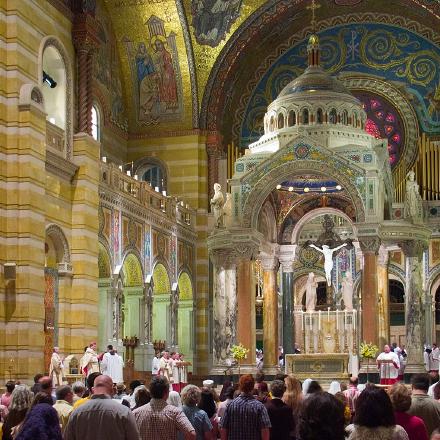
WE ON THE EASTERN Seabord often think that our cities are the last word in ecclesiastical architecture, but Mark Scott Abeln’s splendid ‘Rome of the West‘ site goes a long way towards reminding us of the great physical deposit of Western Civilization and Christian culture situated in the city of St. Louis on the Mississippi River, deep in the heart of America. To show my fellow provincial knickerbockers the richness of St. Louis’s church architecture, I’ve chosen a few photos from Mr. Abeln’s site for posting on this site. A wonderful exhibiton of America’s (which is to say Europe’s) rich cultural heritage.
The jewel in this crown of Catholic Middle America is most certainly the Cathedral Basilica of Saint Louis (above and below). The Cathedral was begun in 1907 and contains the largest collection of mosaic artwork in the world covering 83,000 square feet, the last tesserae of which was installed in 1988. The architecture of the basilica features a number of styles, from the Romanesque Revival exterior to the Byzantine plan and interior, and even contains a chapel designed in the Viennese Reconstructionist style. (more…)
Marshal Foch and the Old Guard
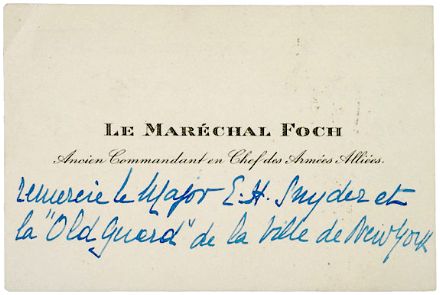
This calling card of Marshal Ferdinand Foch, Supreme Allied Commander during the First World War, was for sale in November of 2005. The text reads Le Maréchal Foch, Ancien Commandant en Chef des Armées Alliées, remercie le Major E.H. Snyder et la “Old Guard” de la Ville de New York or, in English, “Marshal Foch, Former Commander in Chief of the Allied Armies, thanks Major E.H. Snyder and the Old Guard of the City of New York”.
Previously: A New York Funeral | Old Guardsmen | The Old Guard | Grandpa
The Veteran Corps of Artillery
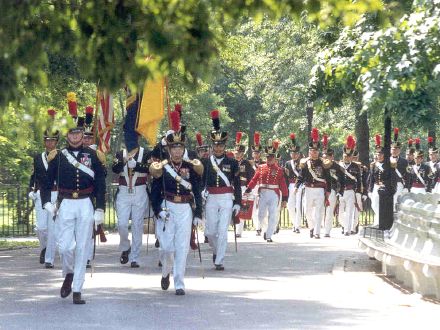
 I PROMISED MYSELF I’d wake up this 4th of July morning and head down to the Battery for the annual Independence Day artillery salute by the Veteran Corps of Artillery. However, the gods of slumber ordained that I remain in bed asleep and so in recompense I thought I’d bring you, dear readers, an informative post about the Corps itself. While this site has featured a fair amount on the Old Guard we mustn’t let our readers be mistaken that we are somehow ignoring the VCA. After all, the Veteran Corps of Artillery, State of New York, founded in 1790, is more senior to the Old Guard, founded in 1826 (though in fact an amalgamation of the two older militia companies, if I recall correctly). While there is more of the Old Guard available from online research, I am more familiar with the VCA owing to my Uncle Matt’s membership thereof. And of course, like the Old Guard, the VCA operates on a seperate ranking structure, so that one could be a Major General in the Army, National Guard, or New York Guard, and yet be a mere private in the Veteran Corps of Artillery. (more…)
I PROMISED MYSELF I’d wake up this 4th of July morning and head down to the Battery for the annual Independence Day artillery salute by the Veteran Corps of Artillery. However, the gods of slumber ordained that I remain in bed asleep and so in recompense I thought I’d bring you, dear readers, an informative post about the Corps itself. While this site has featured a fair amount on the Old Guard we mustn’t let our readers be mistaken that we are somehow ignoring the VCA. After all, the Veteran Corps of Artillery, State of New York, founded in 1790, is more senior to the Old Guard, founded in 1826 (though in fact an amalgamation of the two older militia companies, if I recall correctly). While there is more of the Old Guard available from online research, I am more familiar with the VCA owing to my Uncle Matt’s membership thereof. And of course, like the Old Guard, the VCA operates on a seperate ranking structure, so that one could be a Major General in the Army, National Guard, or New York Guard, and yet be a mere private in the Veteran Corps of Artillery. (more…)
Graduation
In Which the Degree of Magister Artium is Conferred Upon the Author
 The reader is no doubt anxious to hear about the recent goings-on within the Royal Burgh of St Andrews, that ‘auld grey toon’, relating and pertaining to the awarding of a degree to yours truly in recompense for four arduous years of undergraduate study, and so I bring it upon myself to relate a chronicle of said events.
The reader is no doubt anxious to hear about the recent goings-on within the Royal Burgh of St Andrews, that ‘auld grey toon’, relating and pertaining to the awarding of a degree to yours truly in recompense for four arduous years of undergraduate study, and so I bring it upon myself to relate a chronicle of said events.
The Saturday preceding graduation week, I was sitting enjoying a cup of tea with young Miss Dempsey in the Common Room of Canmore on the Scores when I gazed out the window and chanced upon my own dear uncle, Col. Matthew Cusack himself, gazing back at me with surprise. I rushed outside to greet him and invited him in to Canmore to introduce him to Clare before continuing back outside to seek the remainder of my visiting relatives due to arrive. We found them all (bar my brother Airman Matthew Cusack, who would arrive a few days later) around the corner up Murray Park, and it was then that I was first introduced to my dear little nephew Finn, merely a few weeks after his happy arrival. My mother, father, sister, brother-in-law, uncle, aunt, and second uncle all accompanied the little one, whom I have placed under the protection of St. Marcellinus. We made our way to the surprisingly commodious house on the Scores which we rented for the duration of the week and settled down in our temporary abode. (more…)
Major General Lord Monckton of Brenchley, 1915-2006
Knight Grand Cross of Obedience of the Order of Malta
Maj-Gen the 2nd Viscount Monckton of Brenchley, who has died aged 90, was awarded an MC in 1940 and later became director of Army public relations at a time when the Armed Forces’ public profile was growing in importance.
At 50 he retired early to run his 350-acre farm in Kent and to join the boards of a series of firms to help pay for the education of his five children. In the House of Lords he became a persistent critic of the neglect of rural and military interests, and took a lifelong interest in archaeology and water divining.
The sole Roman Catholic trustee of a £3 million appeal for Canterbury Cathedral in 1974, Monckton was president of the British Association of the Sovereign Order of Malta, and helped to ease strained relations with its Anglican counterpart, the Venerable Order of St John of Jerusalem, by taking part in ecumenical services.
He also played a key role in forming the Order of Malta Volunteers, who aid the sick at the shrine of Lourdes, and in setting up trust care homes with the Venerable Order.
Search
Instagram: @andcusack
Click here for my Instagram photos.Most Recent Posts
- Burns Tower April 19, 2024
- Patrick in Parliament March 18, 2024
- Articles of Note: 13 March 2024 March 13, 2024
- Cambridge March 9, 2024
- Taken on Trust March 4, 2024
Most Recent Comments
Book Wishlist
Monthly Archives
Categories

